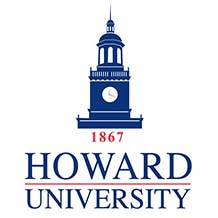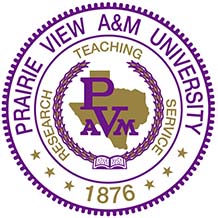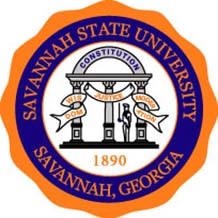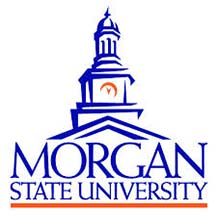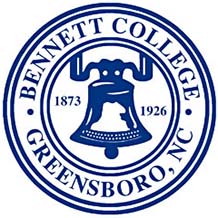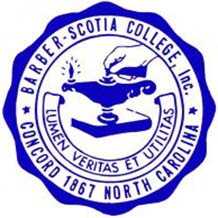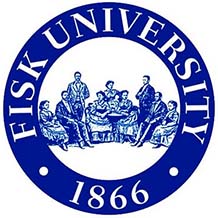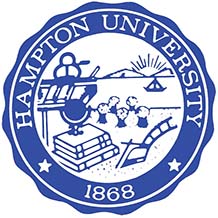| Alabama A&M University |
Huntsville |
Alabama |
1875 |
Public |
|
Founded as “Colored Normal School at Huntsville” |
| Alabama State University |
Montgomery |
Alabama |
1867 |
Public |
|
Founded as “Lincoln Normal School of Marion” |
| Bishop State Community College |
Mobile |
Alabama |
1927 |
Public |
|
Originally a branch of Alabama State College |
| Concordia College, Selma |
Selma |
Alabama |
1922 |
Private |
Lutheran Church – Missouri Synod |
Known as “Alabama Lutheran Academy and Junior College” until 1981 |
| Gadsden State Community College |
Gadsden |
Alabama |
1925 |
Public |
|
Founded as “Alabama School of Trades” |
| J. F. Drake State Technical College |
Huntsville |
Alabama |
1961 |
Public |
|
Founded as “Huntsville State Vocational Technical School” |
| Lawson State Community College |
Bessemer |
Alabama |
1949 |
Public |
|
|
| Miles College |
Fairfield |
Alabama |
1905 |
Private |
CME Church |
Known until 1941 as “Miles Memorial College”; named after Bishop William H. Miles |
| Oakwood University |
Huntsville |
Alabama |
1896 |
Private |
Seventh-day Adventist |
Founded as “Oakwood Industrial School” |
| Selma University |
Selma |
Alabama |
1878 |
Private |
Alabama State Missionary Baptist Convention |
Founded as “Alabama Baptist Normal and Theological School” |
| Shelton State Community College |
Tuscaloosa |
Alabama |
1952 |
Public |
|
Founded as “J.P. Shelton Trade School” |
| Stillman College |
Tuscaloosa |
Alabama |
1876 |
Private |
Presbyterian |
Founded as Tuscaloosa Institute, the College was a concept of Reverend Dr. Charles Allen Stillman, pastor of First Presbyterian Church of Tuscaloosa[18] |
| Talladega College |
Talladega County |
Alabama |
1867 |
Private |
United Church of Christ |
Known as “Swayne School” until 1869 |
| Trenholm State Technical College |
Montgomery |
Alabama |
1947 |
Public |
|
Founded as “John M. Patterson Technical School”[19] |
| Tuskegee University |
Tuskegee |
Alabama |
1881 |
Private |
|
Founded as Tuskegee Institute, now a National Historic Site |
| University of Arkansas at Pine Bluff |
Pine Bluff |
Arkansas |
1873 |
Public |
|
Founded as “Branch Normal College” |
| Arkansas Baptist College |
Little Rock |
Arkansas |
1884 |
Private |
Baptist |
Founded as “Minister’s Institute”[4] |
| Philander Smith College |
Little Rock |
Arkansas |
1877 |
Private |
United Methodist Church |
Founded as “Walden Seminary” |
| Shorter College |
Little Rock |
Arkansas |
1886 |
Private |
African Methodist Episcopal |
Unaccredited two-year college; founded as “Bethel University” |
| Delaware State University |
Dover |
Delaware |
1891 |
Public |
|
Founded as “The State College for Colored Students” |
| University of the District of Columbia |
Washington |
District of Columbia |
1851 |
Public |
|
Founded as “Miner Normal School” |
| Howard University |
Washington |
District of Columbia |
1867 |
Private |
|
Founded as “Howard Normal and Theological School for the Education of Teachers and Preachers” |
| Bethune-Cookman University |
Daytona Beach |
Florida |
1904 |
Private |
United Methodist Church |
Founded as “Daytona Educational and Industrial Training School for Negro Girls” |
| Edward Waters College |
Jacksonville |
Florida |
1866 |
Private |
AME Church |
Founded as “Brown Theological Institute” |
| Florida A&M University |
Tallahassee |
Florida |
1887 |
Public |
|
Founded as “State Normal College for Colored Students” |
| Florida Memorial University |
Miami Gardens |
Florida |
1879 |
Private |
American Baptist Churches USA |
Founded as “Florida Baptist Institute in Live Oak” |
| Albany State University |
Albany |
Georgia |
1903 |
Public |
|
Founded as “Albany Bible and Manual Training Institute” |
| Clark Atlanta University |
Atlanta |
Georgia |
1865 |
Private |
United Methodist Church |
Originally two institutions, Clark College and Atlanta University |
| Fort Valley State University |
Fort Valley |
Georgia |
1895 |
Public |
|
Founded as “Fort Valley High and Industrial School” |
| Interdenominational Theological Center |
Atlanta |
Georgia |
1958 |
Private |
Interdenominational |
|
| Morehouse College |
Atlanta |
Georgia |
1867 |
Private |
Originally,American Baptist Home Mission Society |
Founded as “Augusta Institute” |
| Morehouse School of Medicine |
Atlanta |
Georgia |
1975 |
Private |
|
Founded originally as a part of Morehouse College |
| Morris Brown College |
Atlanta |
Georgia |
1881 |
Private |
African Methodist Episcopal |
|
| Paine College |
Augusta |
Georgia |
1882 |
Private |
United Methodist Church and Christian Methodist Episcopal Church |
Founded as “Paine Institute” |
| Savannah State University |
Savannah |
Georgia |
1890 |
Public |
|
Founded as “Georgia State Industrial College for Colored Youth” |
| Spelman College |
Atlanta |
Georgia |
1881 |
Private |
Originally,American Baptist Home Mission Society |
Founded as “Atlanta Baptist Female Seminary” |
| Kentucky State University |
Frankfort |
Kentucky |
1886 |
Public |
|
Founded as “State Normal School for Colored Persons” |
| Dillard University |
New Orleans |
Louisiana |
1869 |
Private |
United Church of Christ and the United Methodist Church |
Founding predecessor institutions: “Straight University” and “Union Normal School” |
| Grambling State University |
Grambling |
Louisiana |
1901 |
Public |
|
Founded as “Colored Industrial and Agricultural School” |
| Southern University at New Orleans |
New Orleans |
Louisiana |
1959 |
Public |
|
Founded as a branch unit of Southern University in Baton Rouge |
| Southern University at Shreveport |
Shreveport |
Louisiana |
1967 |
Public |
|
Part of the Southern University System |
| Southern University and A&M College |
Baton Rouge |
Louisiana |
1881 |
Public |
|
Conceptualized by P. B. S. Pinchback, T. T. Allain, and Henry Demas |
| Xavier University of Louisiana |
New Orleans |
Louisiana |
1915 |
Private |
Roman Catholic |
Founding predecessor institutions: “St. Katharine Drexel” and the “Sisters of the Blessed Sacrament” |
| Bowie State University |
Bowie |
Maryland |
1865 |
Public |
|
Founded as “Baltimore Normal School” |
| Coppin State University |
Baltimore |
Maryland |
1900 |
Public |
|
Founded as “Colored High School” |
| University of Maryland Eastern Shore |
Princess Anne |
Maryland |
1886 |
Public |
Originally: Methodist Episcopal |
Founded as “Delaware Conference Academy” |
| Morgan State University |
Baltimore |
Maryland |
1867 |
Public |
Originally: Methodist Episcopal |
Founded as “Centenary Biblical Institute” |
| Lewis College of Business |
Detroit |
Michigan |
1928 |
Private |
|
Founded as “Lewis Business College”[12] |
| Alcorn State University |
Lorman |
Mississippi |
1871 |
Public |
|
Founded as “Alcorn University” in honor ofJames L. Alcorn |
| Coahoma Community College |
Coahoma County |
Mississippi |
1924 |
Public |
|
Founded as “Coahoma County Agricultural High School” |
| Hinds Community College at Utica |
Utica |
Mississippi |
1903 |
Public |
|
Founded as “Utica Junior College” |
| Jackson State University |
Jackson |
Mississippi |
1877 |
Public |
|
Founded as “Natchez Seminary” by theAmerican Baptist Home Mission Society, became public in 1942 |
| Mississippi Valley State University |
Itta Bena |
Mississippi |
1950 |
Public |
|
Founded as “Mississippi Vocational College” |
| Rust College |
Holly Springs |
Mississippi |
1866 |
Private |
United Methodist Church |
Known as “Shaw University” until 1882 |
| Tougaloo College |
Hinds County |
Mississippi |
1869 |
Private |
American Missionary Association |
Founded as “Tougaloo University” |
| Harris-Stowe State University |
St. Louis |
Missouri |
1857 |
Public |
|
Founded as “St. Louis Normal School” for whites in 1857, with Stowe Teachers College begun in 1890 for blacks; merged in 1954 [9] |
| Lincoln University of Missouri |
Jefferson City |
Missouri |
1866 |
Public |
|
Founded as “Lincoln Institute”[13] |
| Barber-Scotia College |
Concord |
North Carolina |
1867 |
Private |
Presbyterian |
Founded as two institutions, Scotia Seminary and Barber Memorial College |
| Bennett College |
Greensboro |
North Carolina |
1873 |
Private |
United Methodist Church |
Founded as “Bennett Seminary” |
| Elizabeth City State University |
Elizabeth City |
North Carolina |
1891 |
Public |
|
|
| Fayetteville State University |
Fayetteville |
North Carolina |
1867 |
Public |
|
Founded as “Howard School” |
| Johnson C. Smith University |
Charlotte |
North Carolina |
1867 |
Private |
Presbyterian Church (U.S.A.) |
Founded as “Biddle Memorial Institute” |
| Livingstone College |
Salisbury |
North Carolina |
1879 |
Private |
AME Zion |
Founded as “Zion Wesley Institute” |
| North Carolina A&T State University |
Greensboro |
North Carolina |
1891 |
Public |
|
|
| North Carolina Central University |
Durham |
North Carolina |
1910 |
Public |
|
Founded as “National Religious Training School and Chautauqua“ |
| Shaw University |
Raleigh |
North Carolina |
1865 |
Private |
National Baptist Convention, USA, Inc. |
|
| St. Augustine’s University |
Raleigh |
North Carolina |
1867 |
Private |
Episcopal Church (United States) |
|
| Winston-Salem State University |
Winston-Salem |
North Carolina |
1892 |
Public |
|
Founded as “Slater Industrial and State Normal School” |
| Central State University |
Wilberforce |
Ohio |
1887 |
Public |
AME Church |
Originally a department at Wilberforce University[5] |
| Wilberforce University |
Wilberforce |
Ohio |
1856 |
Private |
AME Church |
Named for William Wilberforce |
| Langston University |
Langston |
Oklahoma |
1897 |
Public |
|
Founded as “Oklahoma Colored Agricultural and Normal University” |
| Cheyney University of Pennsylvania |
Cheyney |
Pennsylvania |
1837 |
Public |
|
The oldest HBCU. Founded by Quakerphilanthropist Richard Humphreys as “Institute for Colored Youth” |
| Lincoln University |
Chester County |
Pennsylvania |
1854 |
Public |
|
Founded as “Ashmun Institute” |
| Allen University |
Columbia |
South Carolina |
1870 |
Private |
African Methodist Episcopal |
Founded as “Payne Institute” |
| Benedict College |
Columbia |
South Carolina |
1870 |
Private |
American Baptist Churches USA |
Founded as “Benedict Institute” |
| Claflin University |
Orangeburg |
South Carolina |
1869 |
Private |
United Methodist Church |
|
| Clinton Junior College |
Rock Hill |
South Carolina |
1894 |
Private |
AME Zion |
Founded as “Clinton Institute”[6] |
| Denmark Technical College |
Denmark |
South Carolina |
1947 |
Public |
|
Founded as “Denmark Area Trade School”[7] |
| Morris College |
Sumter |
South Carolina |
1908 |
Private |
Baptist Educational and Missionary Convention |
|
| South Carolina State University |
Orangeburg |
South Carolina |
1896 |
Public |
|
Founded as “Colored, Normal, Industrial, Agricultural, and Mechanical College of South Carolina” |
| Voorhees College |
Denmark |
South Carolina |
1897 |
Private |
Episcopal Church |
Founded as “Denmark Industrial School” |
| American Baptist College |
Nashville |
Tennessee |
1924 |
Private |
Baptist |
Federal designation as a historically Black college or university was awarded on March 20, 2013 by the U.S. Education Department. [3] |
| Fisk University |
Nashville |
Tennessee |
1866 |
Private |
United Church of Christ[8] |
Named for Clinton Bowen Fisk |
| Knoxville College |
Knoxville (Mechanicsville) |
Tennessee |
1875 |
Private |
United Presbyterian Church of North America |
|
| Lane College |
Jackson |
Tennessee |
1882 |
Private |
Christian Methodist Episcopal Church |
Founded as “Colored Methodist Episcopal High School”[10] |
| LeMoyne-Owen College |
Memphis |
Tennessee |
1862 |
Private |
United Church of Christ |
Founded as “LeMoyne Normal and Commercial School”[11] (elementary school until 1870) |
| Meharry Medical College |
Nashville |
Tennessee |
1876 |
Private |
United Methodist Church |
Founded as the Medical Department ofCentral Tennessee College |
| Tennessee State University |
Nashville |
Tennessee |
1912 |
Public |
|
Founded as “Agricultural and Industrial State Normal School” |
| Huston-Tillotson University |
Austin |
Texas |
1881 |
Private |
United Methodist Church /United Church of Christ |
Founded as “Tillotson Collegiate and Normal Institute” |
| Jarvis Christian College |
Hawkins |
Texas |
1912 |
Private |
The Disciples |
|
| Paul Quinn College |
Dallas |
Texas |
1872 |
Private |
AME Church |
Named for William Paul Quinn |
| Prairie View A&M University |
Prairie View |
Texas |
1876 |
Public |
|
Founded as “Alta Vista Agriculture & Mechanical College for Colored Youth”[15] |
| Southwestern Christian College |
Terrell |
Texas |
1948 |
Private |
Church of Christ |
Founded as “Southern Bible Institute”[16] |
| St. Philip’s College |
San Antonio |
Texas |
1898 |
Public |
Episcopal Church |
Founded as “St. Philip’s Sewing Class for Girls”[17] |
| Texas College |
Tyler |
Texas |
1894 |
Private |
Christian Methodist Episcopal Church |
|
| Texas Southern University |
Houston |
Texas |
1927 |
Public |
|
Founded as “Texas State University for Negroes” |
| Wiley College |
Marshall |
Texas |
1873 |
Private |
United Methodist Church |
Named for Isaac William Wiley |
| University of the Virgin Islands |
St. Croix & St. Thomas |
United States Virgin Islands |
1962 |
Public |
|
Founded as “College of the Virgin Islands” |
| Hampton University |
Hampton |
Virginia |
1868 |
Private |
|
Founded as “Hampton Normal and Agricultural Institute” |
| Norfolk State University |
Norfolk |
Virginia |
1935 |
Public |
|
Founded as “Norfolk Unit of Virginia State University”[14] |
| Virginia State University |
Petersburg |
Virginia |
1882 |
Public |
|
Founded as “Virginia Normal and Collegiate Institute at Petersburg” |
| Virginia Union University |
Richmond |
Virginia |
1864 |
Private |
American Baptist Churches USA |
Founded as “Wayland Seminary,” and merged with Richmond Institute (1865) in 1889[20] |
| Virginia University of Lynchburg |
Lynchburg |
Virginia |
1886 |
Private |
Baptist |
Founded as “Lynchburg Baptist Seminary” |
| Bluefield State College |
Bluefield |
West Virginia |
1895 |
Public |
|
Founded as “Bluefield Colored Institute” |
| West Virginia State University |
Kanawha County |
West Virginia |
1891 |
Public |
|
Founded as “West Virginia Colored Institute” |

